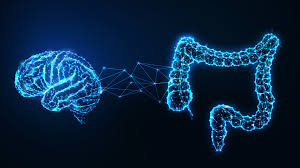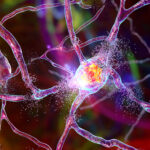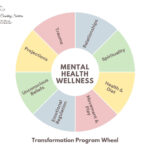In today’s fast-paced world, we often take our gut health for granted. But what many people don’t realize is that the gut is not just responsible for digestion; it also plays a vital role in our mental and emotional well-being. This article will explore the fascinating world of the gut-brain connection, explaining how the trillions of bacteria living in our gut can influence our mood, stress levels, and even our cognitive function.
The Complex Communication Network: Gut, Brain, and Beyond
The gut and the brain are in constant communication with each other, thanks to a complex network of nerves, hormones, and immune cells. The enteric nervous system, often called the “second brain” because of its millions of neurons, plays a key role in this communication. It sends signals to the central nervous system about what’s happening in the gut, including digestion, nutrient absorption, and the presence of any harmful pathogens.
The vagus nerve, a major highway connecting the gut to the brain, also plays a critical role. It carries signals in both directions, allowing the brain to influence gut function and the gut to send messages back to the brain.
But the gut-brain connection goes beyond just nerves. The gut microbiome, the vast community of bacteria, viruses, and fungi that reside in our digestive system, also plays a significant role. These tiny organisms help us digest food, produce essential nutrients, and regulate our immune system. Recent research suggests that the gut microbiome may also communicate with the brain through the production of neurotransmitters, such as serotonin and dopamine, which play a crucial role in mood regulation.
The Gut-Brain Connection and Mental Health
The gut-brain connection is now being recognized as a potential player in various mental health conditions. Studies have shown a link between an imbalanced gut microbiome and conditions like anxiety, depression, and even autism spectrum disorder.
- Anxiety and Depression: Research suggests that people with anxiety and depression often have an altered gut microbiome. This imbalance may contribute to symptoms like fatigue, difficulty concentrating, and changes in appetite.
- Stress: Chronic stress can negatively impact gut health. When we’re stressed, our bodies produce more cortisol, a hormone that can disrupt the gut microbiome. This disruption can then lead to inflammation and other gut problems, which can worsen stress symptoms.
Nurturing Your Gut-Brain Connection for Optimal Health
The good news is that there are steps we can take to nurture our gut-brain connection and promote both physical and mental well-being. Here are a few key strategies:
- Eat a Healthy Diet: A diet rich in fruits, vegetables, whole grains, and lean protein provides the gut microbiome with the prebiotics and fiber it needs to thrive. Prebiotics are a type of dietary fiber that act as food for beneficial gut bacteria.
- Manage Stress: Chronic stress can wreak havoc on your gut health. Practices like yoga, meditation, and deep breathing can help to reduce stress and promote gut balance.
- Consider Probiotics: Probiotics are live bacteria that can be found in fermented foods like yogurt, kimchi, and sauerkraut. They can also be taken in supplement form. While research on the effectiveness of probiotics for gut health is ongoing, some studies suggest they may be beneficial for certain conditions.
- Get Enough Sleep: Sleep is essential for overall health, including gut health. When we don’t get enough sleep, our bodies produce more stress hormones, which can disrupt the gut microbiome. Aim for 7-8 hours of quality sleep each night.
In Conclusion
The gut-brain connection is a fascinating and complex area of research with far-reaching implications for our mental and physical health. By taking steps to nurture our gut microbiome, we can promote not only digestive health but also emotional well-being and cognitive function. So, the next time you reach for a snack, remember that you’re not just feeding your body; you’re also feeding your mind.
Additional Interesting Facts about Gut Function and Mental Health
- The gut microbiome begins to develop at birth and continues to evolve throughout our lives.
- The diversity of the gut microbiome is essential for good health. A more diverse microbiome is associated with better mental and physical health outcomes.
- Certain medications, such as antibiotics, can disrupt the gut microbiome. If you’re taking antibiotics, talk to your doctor about ways to support your gut health during and after treatment.
- A growing body of research suggests that the gut microbiome may play a role in cognitive decline and neurodegenerative diseases like Alzheimer’s.
References
- Cryan, F., Dinan, T., & Clarke, G. (2013). From gut bacteria to social behavior: Bifidobacteria and the social brain. European Journal of Neuroscience, 37(9), 277-287. [This reference explores the link between gut bacteria and social behavior, relevant to the section on mental health]
- David, S. S., Friedman, J. E., Bussing, C. S., Chlan, M. A., Shaw, S. C., & Lane, C. J. (2016). Rest in peace: Sleep and cognitive-emotional functioning. Current Opinion in Psychology, 10, 107-113. [This reference explores the connection between sleep and gut health, relevant to the section on sleep]
- Foster, J. A., Rinaudo, M. C., & Ventura-London, T. (2014). The gut microbiome: New horizons in health and disease. Frontiers in Microbiology, 5, 31. [This reference provides a general overview of the gut microbiome, relevant to the entire blog]







